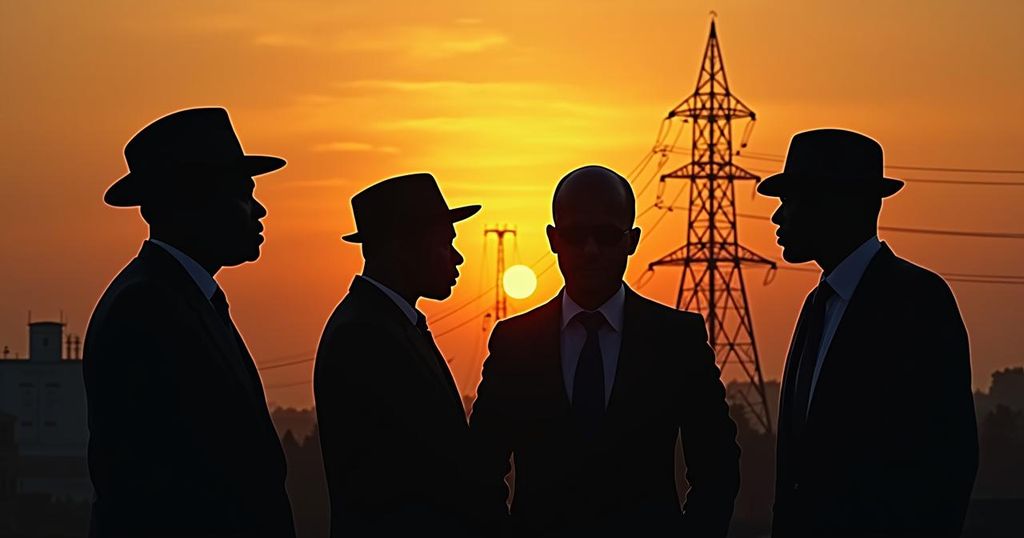Mozambique Votes: A Pivotal Election for Change and Stability

Mozambique’s elections are set to introduce a younger president for the first time since independence in 1975. Approximately 17 million are eligible to vote amid a backdrop of corruption, economic challenges, and armed conflict. Four candidates are contesting the presidency, each representing different approaches to governance and reform. The outcome of these elections could significantly impact the political landscape and address the pressing issues facing the country.
Mozambique is poised for significant political change as the nation prepares for elections that may see the election of its first president born after independence from Portuguese colonial rule in 1975. Approximately 17 million eligible voters will participate in elections that encompass both parliamentary and provincial councils across the 11 provinces of the country. With current president Filipe Nyusi, leader of the Mozambique Liberation Front (Frelimo), set to step down after eight years, this election marks a pivotal moment in the nation’s political landscape. The political atmosphere is charged with issues surrounding corruption, economic instability, and armed conflict. President Nyusi’s tenure has been overshadowed by a corruption scandal involving high-ranking officials in the Frelimo party, including the notorious “tuna bond” scandal which damaged the party’s reputation. Young voters, frustrated with the status quo, express a desire for new leadership capable of addressing rampant unemployment and the ongoing armed conflict in the Cabo Delgado province. Four candidates are vying for the presidency: 1. Daniel Chapo (47), who has emerged as a strong contender due to his association with Frelimo’s incumbency. Despite the party’s tarnished image, he promises to restore peace in Cabo Delgado and distance himself from previous corruption. He aims to attract votes from expatriates in South Africa, seeking support among a broad constituency. 2. Ossufo Momade (63) leads the opposition party Renamo. He retains support from his earlier days as a civil war combatant and a peace accord signatory, but faces challenges regarding the party’s limited parliamentary presence and accusations of electoral fraud. 3. Venancio Mondlane (50), once a Renamo deputy, now runs as an independent endorsed by a coalition of smaller parties. His appeal to younger voters highlights his potential to generate change amidst fears of potential electoral violence following the polls. 4. Lutero Simango (64), head of the Democratic Movement of Mozambique (MDM), focuses on economic development and job creation, specifically advocating for the processing of natural resources within the country to foster local employment. With issues such as the ongoing conflict linked to ISIL-Mozambique in Cabo Delgado, high unemployment, and exacerbating climate challenges affecting food security, the election can be seen as a referendum on Mozambicans’ hopes for reform and stability. The elected president will also guide the selection of 250 parliamentary representatives and local government officials. Vote counting is anticipated to commence immediately following the polls, with partial results projected to be announced soon after. Official results will be released no later than 15 days post-election, with mechanisms for contestation in place to ensure electoral integrity.
The elections in Mozambique represent a crucial step in the nation’s democratic development within the context of historical political struggles. Since gaining independence in 1975, the political landscape has been dominated by the Frelimo party, which fought in the liberation struggle but has faced significant criticism for issues of corruption and governance. The recent socio-economic challenges, including high poverty rates exacerbated by the COVID-19 pandemic and ongoing armed conflict in the north, have led to public disenchantment with traditional political leaders. This election is noteworthy as it has the potential to introduce a new generation into leadership, reflecting the demographic composition of the nation, where a majority of the population is under 25 years of age. The political environment is further complicated by widespread allegations of electoral malpractice and entrenched partisan loyalty among voters.
In conclusion, Mozambique’s upcoming elections are critical in determining the nation’s political future, particularly given the backdrop of youth discontent and historical corruption. The candidates represent divergent approaches to governance, with younger politicians calling for substantive change to address the pressing issues of conflict, unemployment, and environmental challenges. As the nation approaches this pivotal moment, the potential for a shift in leadership may reshape Mozambique’s trajectory and reinvigorate its democracy. It remains to be seen how the electoral process unfolds amid concerns of integrity and transparency.
Original Source: www.aljazeera.com








